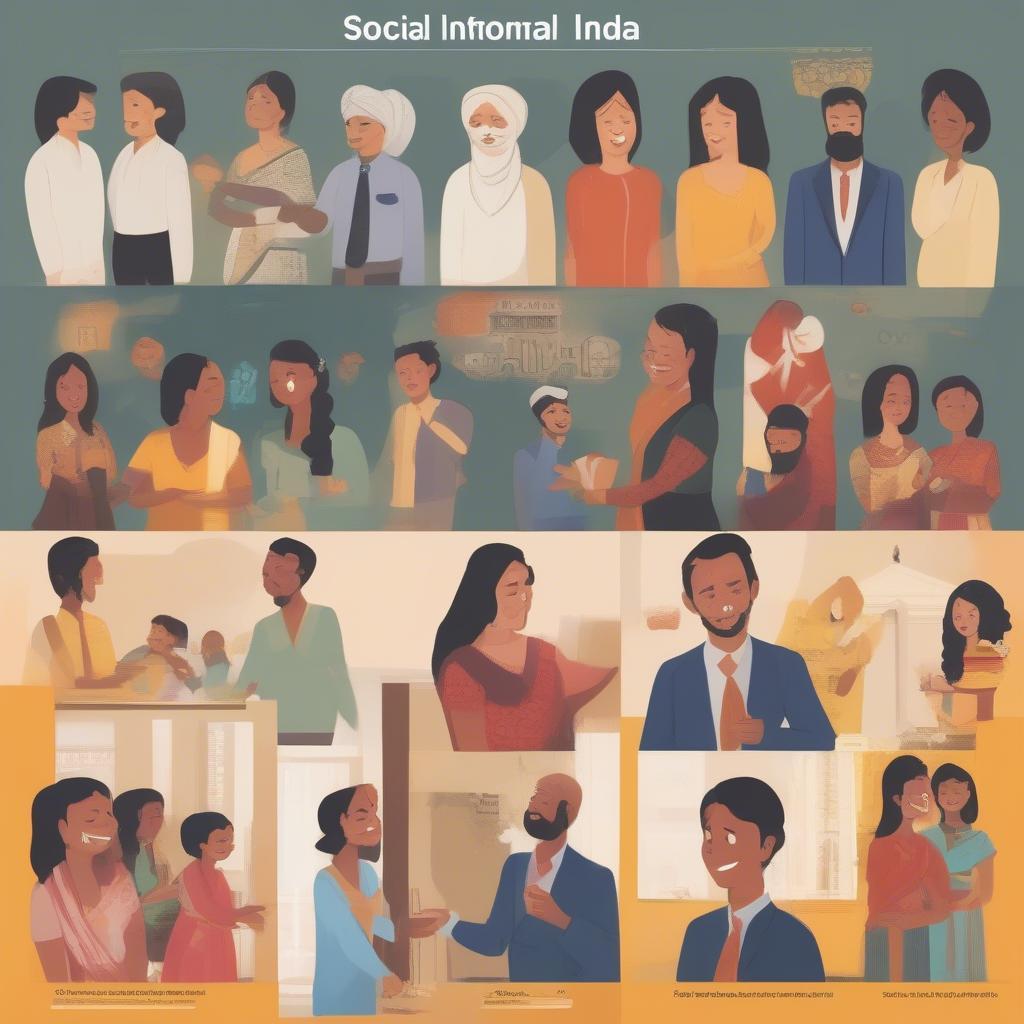“I like your smile” is a simple phrase, yet it holds significant meaning. Understanding how to express this sentiment in Hindi, however, requires delving deeper than a simple translation. This article explores the various ways to convey “I Like Your Smile Meaning In Hindi,” examining the cultural context and subtle nuances that enrich this expression of appreciation.
Expressing “I like your smile” in Hindi: More than just words
Translating “I like your smile” directly into Hindi can be tricky. A literal translation might not capture the intended emotion. Instead, focusing on the feeling behind the compliment often yields a more accurate and impactful expression. The Hindi language, rich with emotion and poetic expression, offers several beautiful ways to convey admiration for a smile.
Common Phrases and Their Meanings
- “Mujhe aapki muskaan pasand hai” (मुझे आपकी मुस्कान पसंद है): This is the most direct translation, meaning “I like your smile.” It’s polite and suitable for most situations.
- “Aapki muskaan khoobsurat hai” (आपकी मुस्कान खूबसूरत है): This translates to “Your smile is beautiful.” It emphasizes the aesthetic appeal of the smile.
- “Aapki muskaan bahut pyari hai” (आपकी मुस्कान बहुत प्यारी है): Meaning “Your smile is very lovely,” this phrase adds a touch of endearment.
- “Aapki hansti hui surat acchi lagti hai” (आप हँसती हुई सूरत अच्छी लगती है): This phrase translates to “Your smiling face looks good,” focusing on the overall pleasant impression created by the smile.
 Various expressions for "I like your smile" in Hindi
Various expressions for "I like your smile" in Hindi
The Cultural Context of Complimenting a Smile in Hindi
In Indian culture, compliments are often expressed indirectly or with a degree of formality, especially between individuals of the opposite gender or different social standings. While “I like your smile” is generally well-received, understanding the context and relationship between the individuals involved is crucial for choosing the most appropriate expression.
Formal vs. Informal Settings
The level of formality influences the choice of words. In formal settings, using respectful pronouns like “aap” (आप) is essential. In informal situations, “tum” (तुम) can be used with close friends and family.
Gender Dynamics
Traditionally, direct compliments between men and women are less common. While expressing admiration for a smile is acceptable, choosing a phrase that focuses on the beauty or loveliness of the smile, rather than direct personal attraction, is often more appropriate.
 Cultural nuances of complimenting a smile in Hindi
Cultural nuances of complimenting a smile in Hindi
Beyond “I like your smile”: Expressing Deeper Emotions
The beauty of the Hindi language lies in its ability to express a wide range of emotions with subtlety and depth. While “I like your smile” is a pleasant compliment, exploring related expressions can further enhance communication.
Appreciating the Impact of a Smile
- “Aapki muskaan se mera din ban gaya” (आपकी मुस्कान से मेरा दिन बन गया): This means “Your smile made my day,” expressing the positive impact the smile had.
- “Aapki muskaan mujhe khush karti hai” (आपकी मुस्कान मुझे खुश करती है): This translates to “Your smile makes me happy,” indicating a deeper emotional connection.
Focusing on the Radiance of a Smile
- “Aapki muskaan chamakdar hai” (आपकी मुस्कान चमकदार है): Meaning “Your smile is radiant,” this phrase highlights the brightness and energy of the smile.
Conclusion: Choosing the Right Words to Convey Your Appreciation
Expressing “I like your smile” in Hindi requires considering the cultural context, the relationship between individuals, and the specific nuance you want to convey. While a direct translation exists, exploring the various phrases available in Hindi allows for a richer and more meaningful expression of appreciation. By choosing the right words, you can truly capture the essence of this simple yet powerful compliment and make a lasting positive impression.
 Choosing the right words to express appreciation for a smile
Choosing the right words to express appreciation for a smile
FAQ:
-
What is the most common way to say “I like your smile” in Hindi?
- “Mujhe aapki muskaan pasand hai” is the most common and direct translation.
-
Is it appropriate to compliment someone’s smile in Indian culture?
- Yes, but consider the context and relationship between individuals.
-
Are there different ways to compliment a smile depending on the gender of the person?
- Traditionally, compliments between men and women are often less direct.
-
How can I express a deeper appreciation for a smile than just saying “I like it”?
- Phrases like “Your smile made my day” or “Your smile makes me happy” convey deeper emotion.
-
What are some other words in Hindi to describe a smile?
- Words like “khoo
bsurat” (beautiful), “pyari” (lovely), and “chamakdar” (radiant) can be used to describe a smile.
- Words like “khoo
-
What does “muskaan” mean in Hindi?
- “Muskaan” (मुस्कान) means “smile”.
-
Can I use “tum” instead of “aap” when complimenting someone’s smile?
- Using “tum” is acceptable in informal settings with close friends and family.
Need more help?
For further assistance with expressing emotions and finding the perfect words, explore other articles on ViperCircle related to love, language, and relationships.
Contact us: For any questions or support, please reach out to us at Contact@ViperCircle.com or visit us at G-5, लोअर परेल, सेनापति बापट मार्ग, मुंबई, महाराष्ट्र – 400013, भारत।. Our customer service team is available 24/7.